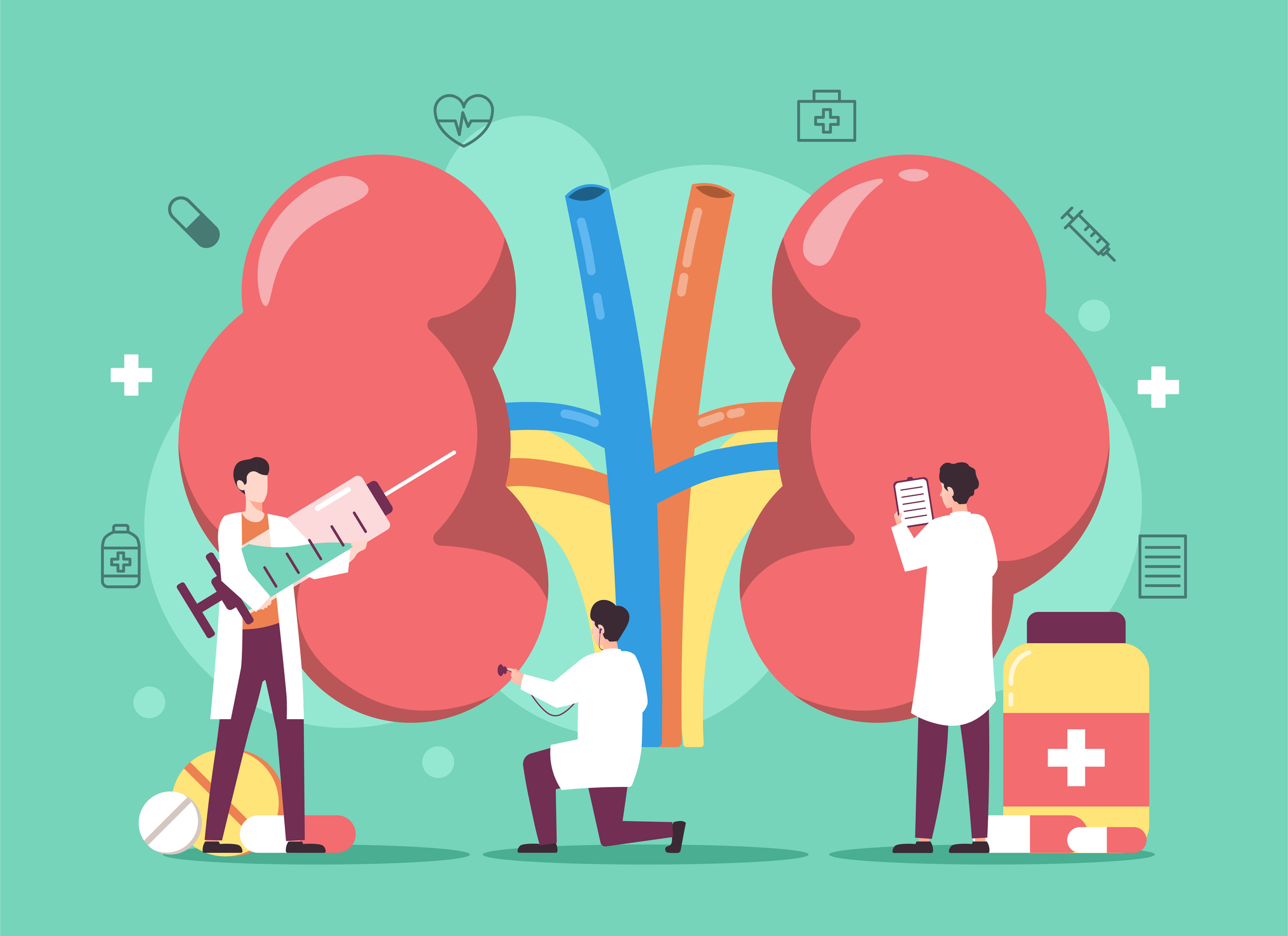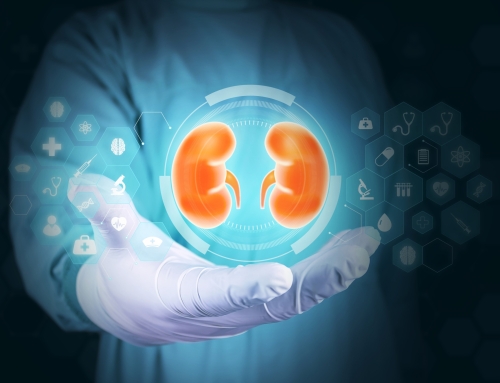Rebecca Schmidt, DO, Jeffrey Silberzweig, MD, Kristina Bryant, MD
On Behalf of the American Society of Nephrology’s Kidney Community Vaccination Collaborative
Introduction
Living with kidney disease presents unique health challenges, including an increased susceptibility to infections. Immunizations play a crucial role in protecting people with kidney disease, including those on dialysis or with a kidney transplant, from preventable diseases. This article will discuss the importance of vaccines in general and those protecting against respiratory illness specifically, the risks associated with not being vaccinated, and concerns related to misinformation on vaccination decisions.
Why Immunizations Are Crucial for People with Kidney Disease
People with chronic kidney disease (CKD) have weakened immune systems and thus, they are less able to fight off infections. Fortunately, vaccines provide additional protection against a number of different infections, such as influenza, hepatitis B, COVID-19, germs causing pneumonia and more recently, respiratory syncytial virus (RSV).
- Increased Risk of Infections: People with CKD are more susceptible to severe complications from diseases that vaccines can prevent. People with CKD are more likely to develop COVID-19 and had higher rates of death and other complications than people without CKD during the height of the pandemic. Adults with CKD are also at higher risk for hospitalization from RSV infection.
- Preventing Severe Illness: Vaccines help prevent severe illness, reduce the need for hospitalization, and are especially important in the fall when respiratory viral illnesses are circulating and can be particularly severe in people with CKD. In addition to flu and COVID, people with CKD are vulnerable to other respiratory illnesses such as pneumococcal pneumonia. Immunization can reduce the chances of developing pneumonia. New attention has been focused on RSV, which is being seen more in adults and has potential to cause serious illness particularly in people with CKD. The RSV vaccine can reduce the chances that people with kidney disease will be hospitalized with RSV infection.
- Protecting Against Non-Respiratory Diseases: Vaccines like the hepatitis B are crucial for people with CKD, especially those on dialysis, as they are at higher risk of contracting hepatitis B from blood transfusions and exposure while in the dialysis unit.
Risks of Not Being Vaccinated
The decision to forgo vaccination can have serious consequences for people with kidney disease.
- Higher Risk of Severe Illness: Unvaccinated people with kidney disease are at a higher risk of contracting diseases that can lead to severe illness, hospitalization, or even death.
- Increased Healthcare Costs: Treating preventable diseases can save on one’s healthcare costs due to hospital stays, medications, and additional treatments.
- Impact on Quality of Life: Frequent infections and their complications can significantly impact the quality of life for people with CKD by leading to prolonged recovery times and decreased overall well-being.
Recognizing Misinformation
Misinformation about vaccines can reduce confidence in vaccines or increase aversion to seeking vaccination, which is particularly dangerous for people with kidney diseases. Here are some common myths and the truths:
Myths:
- Vaccines Are Unsafe for people with CKD: Vaccines are thoroughly tested for safety and efficacy. The benefits of vaccination far outweigh the risks, especially for immunocompromised individuals.
- Vaccines Can Cause the Disease They Are Meant to Prevent: Vaccines contain inactivated or weakened forms of the virus, which cannot cause the disease. They help the immune system recognize and fight the virus if exposed to it in the future.
- Natural Immunity Is Better Than Vaccine-Induced Immunity: While natural immunity can provide protection, it comes at the cost of suffering through the disease and its potential complications. Vaccines provide a safe and controlled way to develop immunity and strengthen the immune system. For diseases like COVID-19, immunization provides additional protection to people who have had prior COVID disease, reducing the risk of repeat infection.
Truths:
- Vaccines are thoroughly tested before receiving approval from the US Food and Drug Administration and considered safe for people with CKD as recommended by the CDC.
- Side effects do happen but are usually minor and much less significant than the disease against which people are vaccinated. Common side effects of vaccines include pain at the injection site, headaches, fatigue, and mild upper respiratory symptoms.
- It is safe to receive both the flu and COVID vaccines on the same day as recommended by the CDC Using separate arms for each vaccine can help minimize pain at the injection site.
- The pandemic had an unprecedented impact on people with kidney disease; almost half of people with CKD who were infected with COVID-19 died compared to about 5% of the general population. Among people with CKD on dialysis, so many died that for the first time in the 50-year history of the Medicare End Stage Renal Disease program, the total number of people on dialysis in the United States declined. Vaccination against COVID-19 reduces the chances of severe disease and death and may reduce the risk of developing long COVID.
Finding True Information:
- Seek out your doctor or the staff at your clinic or dialysis facility and ask them for information and resources about the safety and efficacy of vaccines.
- Seek out trusted sources such as the American Society of Nephrology’s Kidney Community Vaccination Collaborative, the National Kidney Foundationand the CDC for information about vaccinations.
Conclusion
Immunizations are a vital part of maintaining health and preventing serious infections for people with CKD. The risks of not being vaccinated far outweigh the risks for potential side effects of vaccines. It is essential to rely on accurate information from trusted resources when making decisions about vaccinations. By choosing to stay up to date with recommended vaccines, people with CKD can protect themselves and improve their quality of life.
If you have questions or concerns about vaccinations, please talk to your doctor or the nurse at your clinic or dialysis facility. They can provide personalized advice based on your specific health needs. Stay informed, stay protected, and take control of your health.




